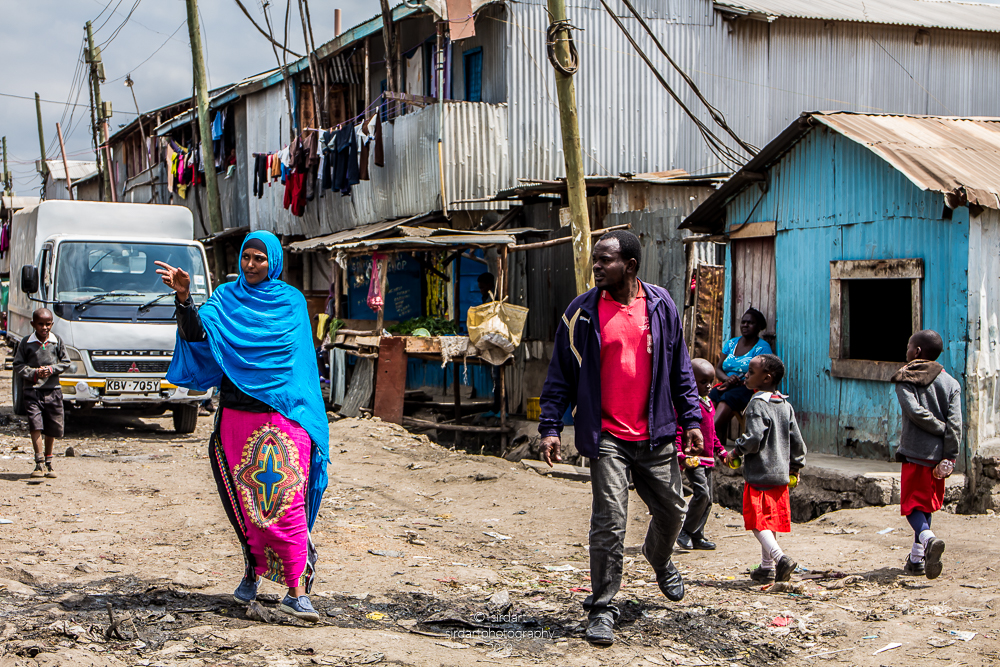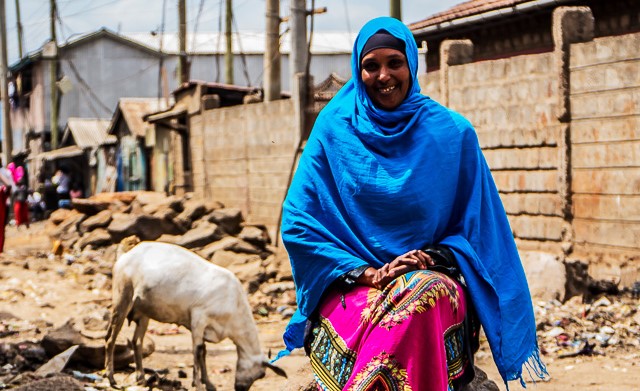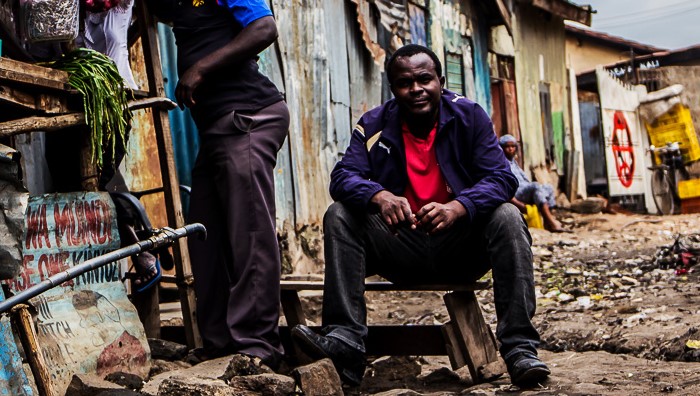
It is 11:28am. Rukia Godana arrives at SHOFCO gender office in the slum of Mukuru Kwa Njenga in Kenya’s capital, Nairobi, panting and sweating. She has walked, jumped over raw sewage and slipped in muddy paths from the nearby Mukuru Kwa Reuben slum, situated about three kilometers away.
Rukia tells us: “I have been following up a defilement case at Mukuru Kwa Reuben. I was able to get a medical report and papers from the police which we will use to assist the victim to get justice.”
Rukia, a 34-year-old mother of two, has been on the forefront in fighting gender-based violence since 2012 in Mukuru, a sprawling slum stamped with hallmarks of poverty. Rukia is one of SHOFCO’s volunteer Gender Champions. Rukia and 11 other gender champions volunteer at SHOFCO gender program where they are addressing sexual and gender based violence (SGBV) cases across the slum. SHOFCO gender program serves communities in Mukuru, Mathare, Kibera and Bangladesh urban slums. In 2018, SHOFCO handled 1,210 SGBV cases, up from 1,138 cases the year before.
“I love children. When I see a mother cry helplessly after her child has been defiled, I am touched. Lifting their loads during such moments make me happy,” she says.
But what made her to take the path that would later make her a gender champion? “An attempted defilement case against someone close to me made me realize that many people are suffering silently and hiding. The incident made me angry and I chose to fight for the rights of those being oppressed. The positive impact of my work keeps me going,” Rukia says.

Rukia Godana has been on the forefront in fighting gender-based violence in Mukuru slum since 2012. Photo: Anwar Sadat | SHOFCO
Elphas Mtekwa started volunteering at SHOFCO gender program in 2016. Elphas says addressing SGBV cases in slums is not a task for the faint-hearted. The 33-year-old father of three says: “We work in groups to avoid being harmed by perpetrators of SGBV. At least three champions have to attend to a single case. When the situation deteriorates, we call the police.”
Circumstances in slums make them conducive for SGBV due to overcrowding, inadequate policing, poor lighting, deeply entrenched patriarchy and a culture of impunity for perpetrators.
The extreme poverty in slums is a hindrance to justice for victims. Elphas says: “People who have good money usually buy their way out of trouble after committing these (SGBV) crimes. With KSh10,000 ($100), one can solve a serious case locally with the family of the victim. We always resist and this puts us in disharmony with some family members.”

Elphas Mtekwa started volunteering at SHOFCO gender program in 2016. Photo: Anwar Sadat | SHOFCO.
Caroline Sakwa, SHOFCO’s Gender Program Director shares that “the most traumatizing cases that the program battles with are defilement (sexual violence against children). Its effects leave the child and the family with physical and psychological trauma. In 2018, 11 cases of defilement were reported to us in our four sites, we saw the cases through to court, and all 11 perpetrators were sentenced to life imprisonment.”
SHOFCO recently completed construction of a GBV Safe House in Mukuru slum which will provide a temporary home for SGBV survivors to receive psycho-social support and healing. SHOFCO believes that investment in increased outreach campaigns in the community, revamped information and legal aid support, referrals on GBV prevention, and response initiatives will further reduce SGBV cases in the four sites.
The gender program partners with government agencies such as the Government’s Department of Children’s Services, Department of Gender Affairs, Department of National Administration and the National Police Service. They also coordinate with NGOs, CBOs, court user’s committees and children’s homes.
